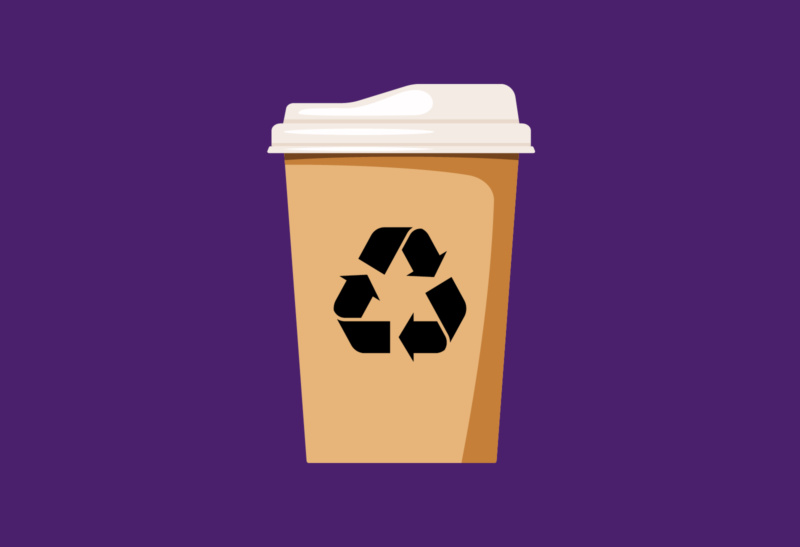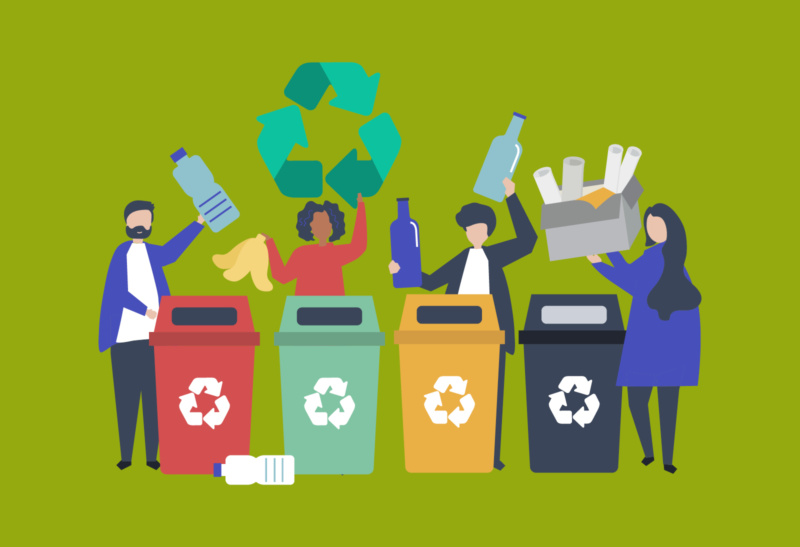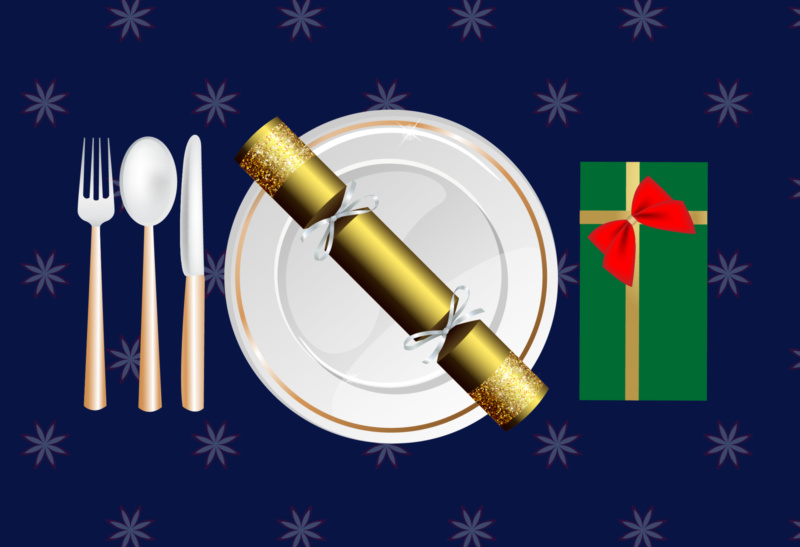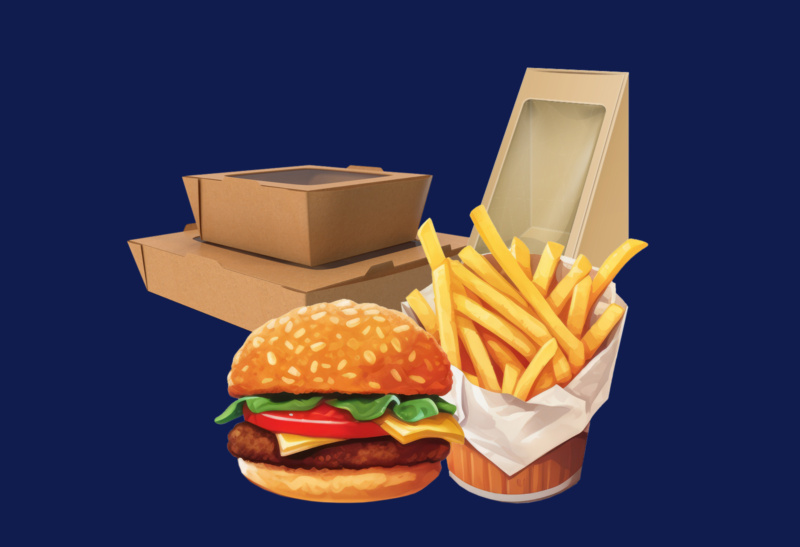Updated January 2025
The UK coffee culture has undergone a significant transformation in recent years, evolving from a nation traditionally known for its love of tea to one that now embraces a vibrant and diverse coffee scene. Coffee is not either for just sitting in, as convenience has become a bigger priority for more and more consumers and an important way for coffee shops to increase revenue.
Without offering to-go options, the majority of coffee shops would struggle to stay in business.* With the increase of on-the-go lifestyle there is inevitably also more waste generated though single use cups.
Sustainability is an increasing trend for coffee drinkers who are seeking out ethically sourced and environmentally friendly coffee options such as purchasing beans from fair trade certified brands such as Black + White Coffee Co Fairtrade Medium Roast Coffee Beans (86666).
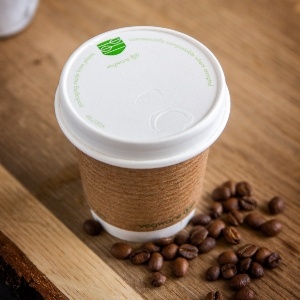
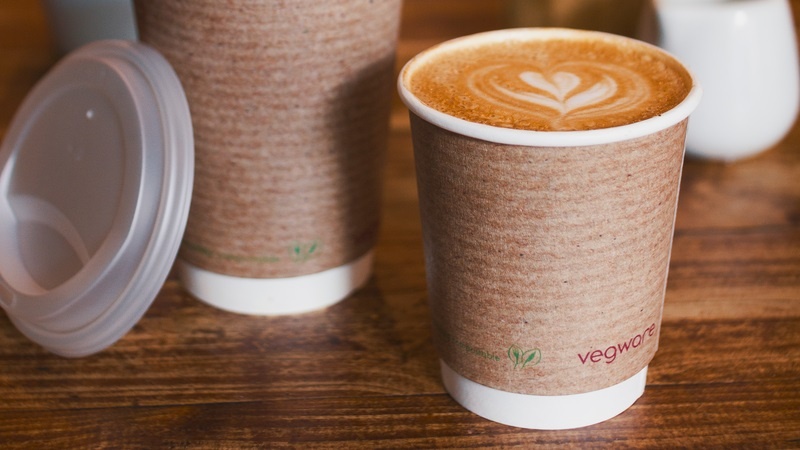
But, what can we do about the single use cup?
After the pandemic, there was a growing trend towards bringing your own cup and some coffee establishments still offer a discount if you bring your own cup. However, with a more fast-paced on-the-go lifestyle it is easier for people to use single-use cups that remembering to bring their own and then carrying it with them for the rest of the day.
Legislation is always a driver for changing habits and until recently a Mandatory Take Back Scheme legislation proposed by DEFRA UK was due to be implemented in 2025 but has now been scrapped due to costs involved to both the government and the industry and it is thought it would have limited impact on the environmental objectives.**
Why is it so hard to recycle paper cups?
To meet hygiene needs paper cups are made out of virgin materials, which means they could be recycled in theory. However, to be able to drink out of the cup, most cups need to have a lining to hold the liquid – traditionally being PE (polyethylene lining) which is non-recyclable and to separate the lining from the paper is very hard to do.
The good news is that there has been new innovation in terms of the materials used for lining cups, which now include PLA, aqueous or the most innovative yet is cups with no lining!
But what do they all mean and which paper cup is better for the environment?
What are paper cups lined with?
PE
Polyethylene (PE) is the traditional way of lining disposable cups to make them waterproof. This is not easily separated from the board unless recycled via a specialist cup recycling facility, not commonly used by local authorities.
PLA
PLA products are known as bio-plastics made from plant-based material such as corn and sugarcane. These products are considered kinder to the planet as PLA requires less usage of fossil fuels and generates fewer greenhouse gases than traditional plastics. PLA can only be recycled using and industrial composting facility.
Aqueous lining
This is a relatively new material used to line paper cups. Aqueous is a water-based latex emulsion to make the cups waterproof. Cups lined with this material can be both home and industrial compostable and aqueous lining is recyclable as a material.
But, due to the UK recycling infrastructure, they cannot yet be recycled in normal paper recycling facilities as the technology isn’t developed to support it. Aqueous lined cups can be recycled with a specialist cup recycling facility.
No lining
In partnership with Vegware we have also launched a first to market hot cup with no lining! The Nourish Hot Cup (19743) is made from only fibre, has no dye, no added PFAS and can be placed in any waste bin – home and industrial composting as well as mixed recycling!
To conclude, are paper cups recyclable?
All cups can technically be recycled but not via mainstream waste channels. The fibres from paper cups can be recycled up to seven times into a variety of products ranging from everyday chipboard and paperboard to high quality paper products such as bespoke packaging and shopping bags.***
But disposal needs to be managed, which is no different from anything else that we recycle. Don’t be a ‘wishcycler’ by putting cups in a paper recycling bin or mixed recycling bins – they won’t get recycled – and worse, will just contaminate recycling.
If you really want to make a difference and ensure the cups you use at your facility have a responsible end of life, check with you local waste facility and understand what recycling options are best for you, which will determine the most suitable cup for you to use.
How do paper cups get recycled?
I am pleased to say there is now a solution for all types of hot cups whatever the lining used on the cup. This is by using a specialist cup recycling waste collector. We have partnered up with co-cre8 to provide an end-of-life solution for customers seeking a transparent and auditable solution to recycle paper cups.
How it works? Paper cups are collected, weighed, baled and sent for onwards recycling in the UK. The type of paper cup determines which recycling facility the cups will be sent to, but rest assured that all cups are recycled and given a second life in new products!
Another alternative is that if you are using PLA lined cups, Vegware will help you to find you your nearest composting facility and help you also to manage your waste, contact environmental@vegware.com.
There is no best cup for recycling but having the right cup with the correct waste stream is the ultimate solution and makes a great story, fill your bins and get your customers recycling!
Top tip: If you are recycling or composting your paper cups, shout about it so your customers are aware! It is a fantastic way to drive footfall and ensure repeat custom. For example, use clear signage of where the customer needs to place their cup when they are finished with their drink, and a good idea is to provide details of what products are created with the cups being recycled, which could be a water bottle or note pad that you can sell in your venue.
To find out more about our products including paper cups, have a look at our new Food Packaging Solutions Guide and if you want to learn more about the different materials being used in on-the-go packaging we have created a simple guide – Sustainability in Food Packaging.
Read more about wholesale caterers equipment and catering supplies here.
Sources:
*Perfect Daily Grind, Why coffee shops can’t survive without takeaway, July 2024
**Circular, Defra cancels mandatory single-use cup take-back scheme, Dec 2024
***Valpak, UK recycling: Myths vs. fact, Sept 2020.
Read more of our related blogs here:
Are you recycling effectively?
What is the next generation of food packaging?
5 examples of innovative products with sustainable features
5 handy tips to reduce your plastic usage
How to clean green – what does it actually mean?How to choose packaging with sustainable features
10 easy tips to be more sustainable
